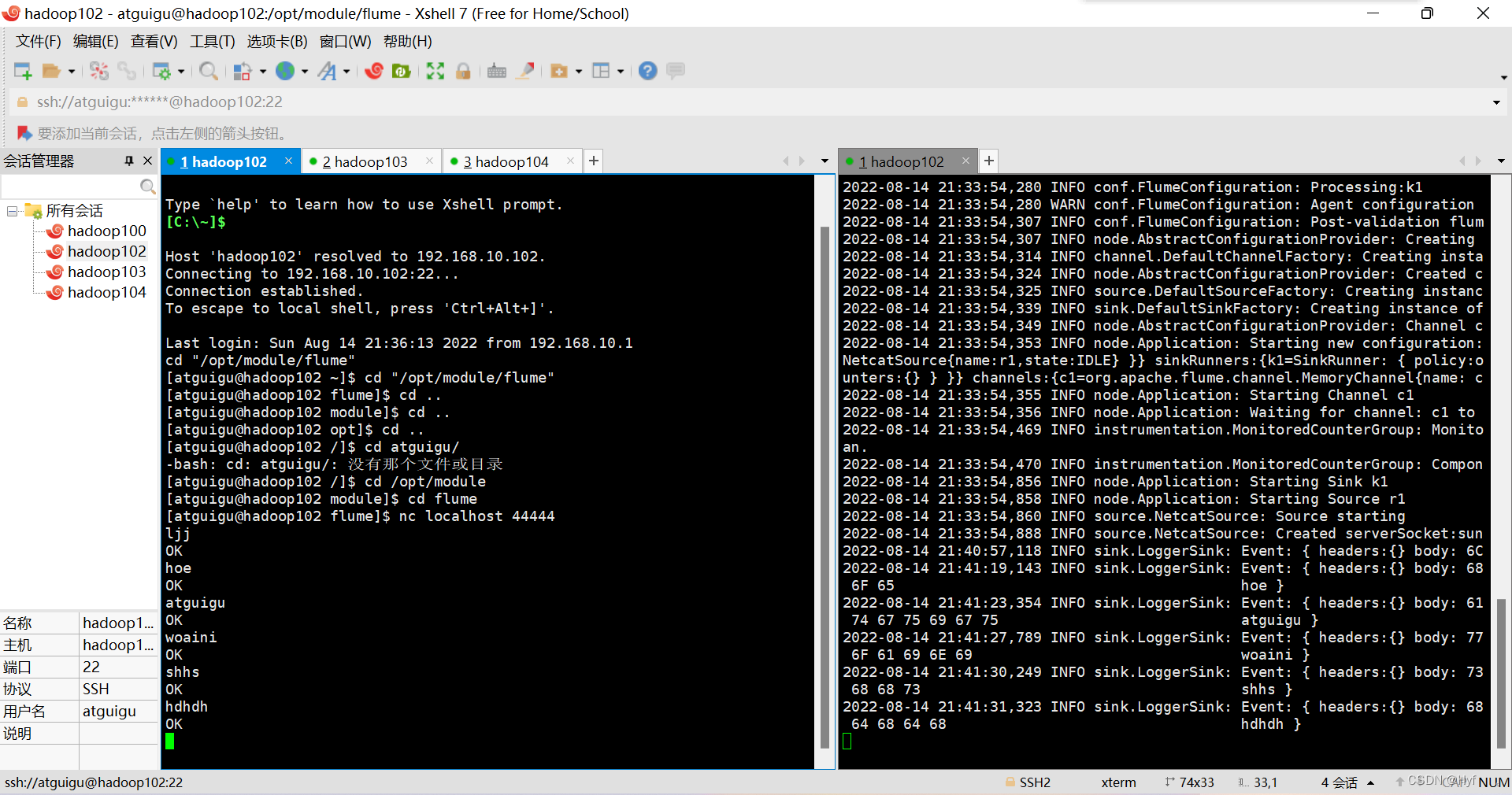目录
Flume定义
Flume是Cloudera提供 的一个高可用的,高可靠的,分布式的海量日志采集、聚合和传输的系统。Flume基于流式架构,灵活简单。
Flume基础架构
Flume组成架构如下图所示
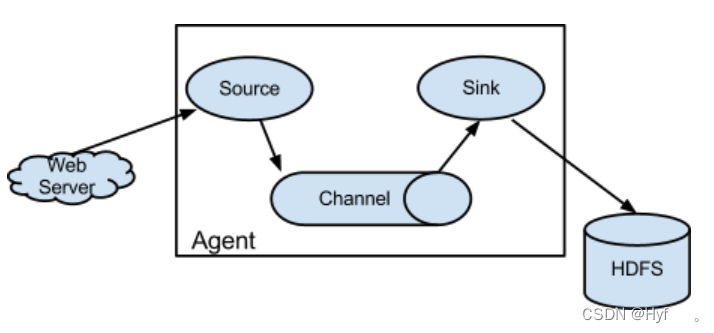
Agent
Agent是一个JVM进程,它以事件的形式数据从源头送至目的。
Agent主要有3个部分组成,Source、Channel、Sink。
Source
Source是负责接收数据到 Flume Agent 的组件。Source组件可以处理各种类型、各种格式 的日志数据,包括 avro、thrift、exec、jms、spooling directory、netcat、taildir、 sequence generator、syslog、http、legacy。
Sink
Sink不断地轮询Channel中的事件且批量地移除它们,并将这些事件批量写入到存储或索引系统、或者被发送到另一个Flume Agent
Sink 组件目的地包括 hdfs、logger、avro、thrift、ipc、file、HBase、solr、自定 义。
Channel
Channel 是位于 Source 和 Sink 之间的缓冲区。因此,Channel 允许 Source 和 Sink 运 作在不同的速率上。Channel 是线程安全的,可以同时处理几个 Source 的写入操作和几个 Sink 的读取操作。
Flume 自带两种 Channel:Memory Channel 和 File Channel。
Memory Channel 是内存中的队列。Memory Channel 在不需要关心数据丢失的情景下适 用。如果需要关心数据丢失,那么 Memory Channel 就不应该使用,因为程序死亡、机器宕 机或者重启都会导致数据丢失。
File Channel 将所有事件写到磁盘。因此在程序关闭或机器宕机的情况下不会丢失数 据。
Event
传输单元,Flume数据传输的基本单元,以Event的形式将数据从源头送至目的地。Event由Header和Body两部分组成,Header用来存放该event的一些属性,为K-V结构,Body用来存放该条数据,形式为字节数组。
Flume安装部署
安装地址
(1)Flume 官网地址:
Welcome to Apache Flume — Apache Flume
![]()
https://flume.apache.org/index.html
(2)文档查看地址:
Flume 1.10.0 User Guide — Apache Flume
![]()
https://flume.apache.org/FlumeUserGuide.html
(3)下载地址:
Index of /dist/flume (apache.org)
![]()
http://archive.apache.org/dist/flume/
安装部署
(1)将apache-flume-1.9.0-bin.tar.gz上传到 linux 的 /opt/software目录下
(2)解压 apache-flume-1.9.0-bin.tar.gz 到/opt/module/目录下
[atguigu@hadoop102 software]$ tar -zxf /opt/software/apacheflume-1.9.0-bin.tar.gz -C /opt/module/
(3)修改 apache-flume-1.9.0-bin 的名称为 flume
[atguigu@hadoop102 module]$ mv /opt/module/apache-flume-1.9.0-bin /opt/module/flume
(4)将 lib 文件夹下的 guava-11.0.2.jar 删除以兼容 Hadoop 3.1.3
[atguigu@hadoop102 lib]$ rm -rf guava-11.0.2.jar
Flume入门案例
监控端口数据官方案例
案例需求:
使用Flume监听一个端口,收集该端口数据,并打印到控制台。
需求分析:
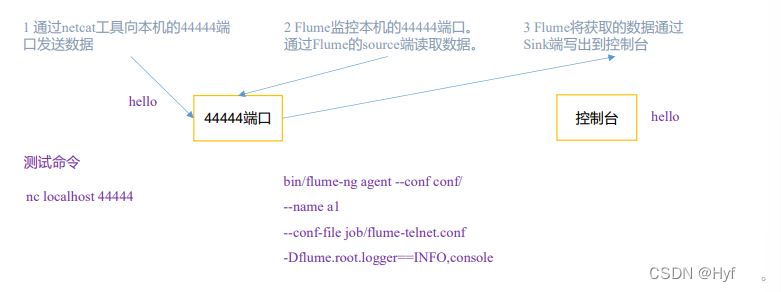
实现步骤:
(1)安装 netcat 工具
[atguigu@hadoop102 software]$ sudo yum install -y nc
(2)判断 44444 端口是否被占用
[atguigu@hadoop102 flume-telnet]$ sudo netstat -nlp | grep 44444
(3)在 flume 目录下创建 job 文件夹并进入 job 文件夹。
[atguigu@hadoop102 flume]$ mkdir job
[atguigu@hadoop102 flume]$ cd job/
(4)在 job 文件夹下创建 Flume Agent 配置文件 flume-netcat-logger.conf。
[atguigu@hadoop102 job]$ vim flume-netcat-logger.conf
(5)在 flume-netcat-logger.conf 文件中添加如下内容。
# Name the components on this agent
a1.sources = r1
a1.sinks = k1
a1.channels = c1
# Describe/configure the source
a1.sources.r1.type = netcat
a1.sources.r1.bind = localhost
a1.sources.r1.port = 44444
# Describe the sink
a1.sinks.k1.type = logger
# Use a channel which buffers events in memory
a1.channels.c1.type = memory
a1.channels.c1.capacity = 1000
a1.channels.c1.transactionCapacity = 100
# Bind the source and sink to the channel
a1.sources.r1.channels = c1
a1.sinks.k1.channel = c1配置文件解析(图片来源于尚硅谷)
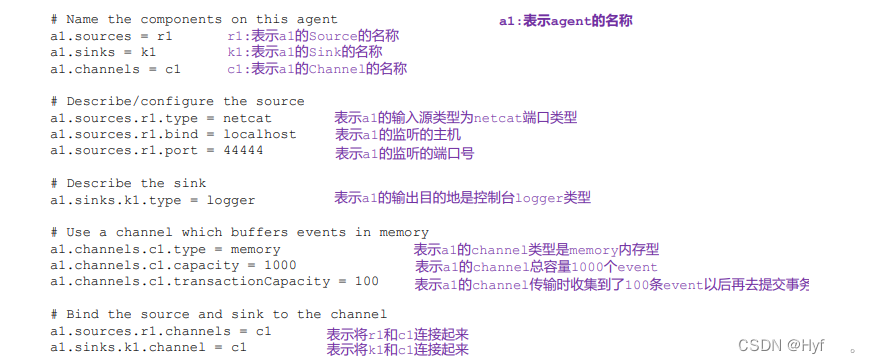
测试:
1、先开启服务端
[atguigu@hadoop102 flume]$ bin/flume-ng agent -c conf/ -n a1 -f job/flume-netcat-logger.conf -Dflume.root.logger=INFO,console
参数说明:
–conf/-c:表示配置文件存储在 conf/目录
–name/-n:表示给 agent 起名为 a1
–conf-file/-f:flume 本次启动读取的配置文件是在 job 文件夹下的 flume-telnet.conf 文件。
-Dflume.root.logger=INFO,console :-D 表示 flume 运行时动态修改 flume.root.logger 参数属性值,并将控制台日志打印级别设置为 INFO 级别。日志级别包括:log、info、warn、 error。
监听44444端口
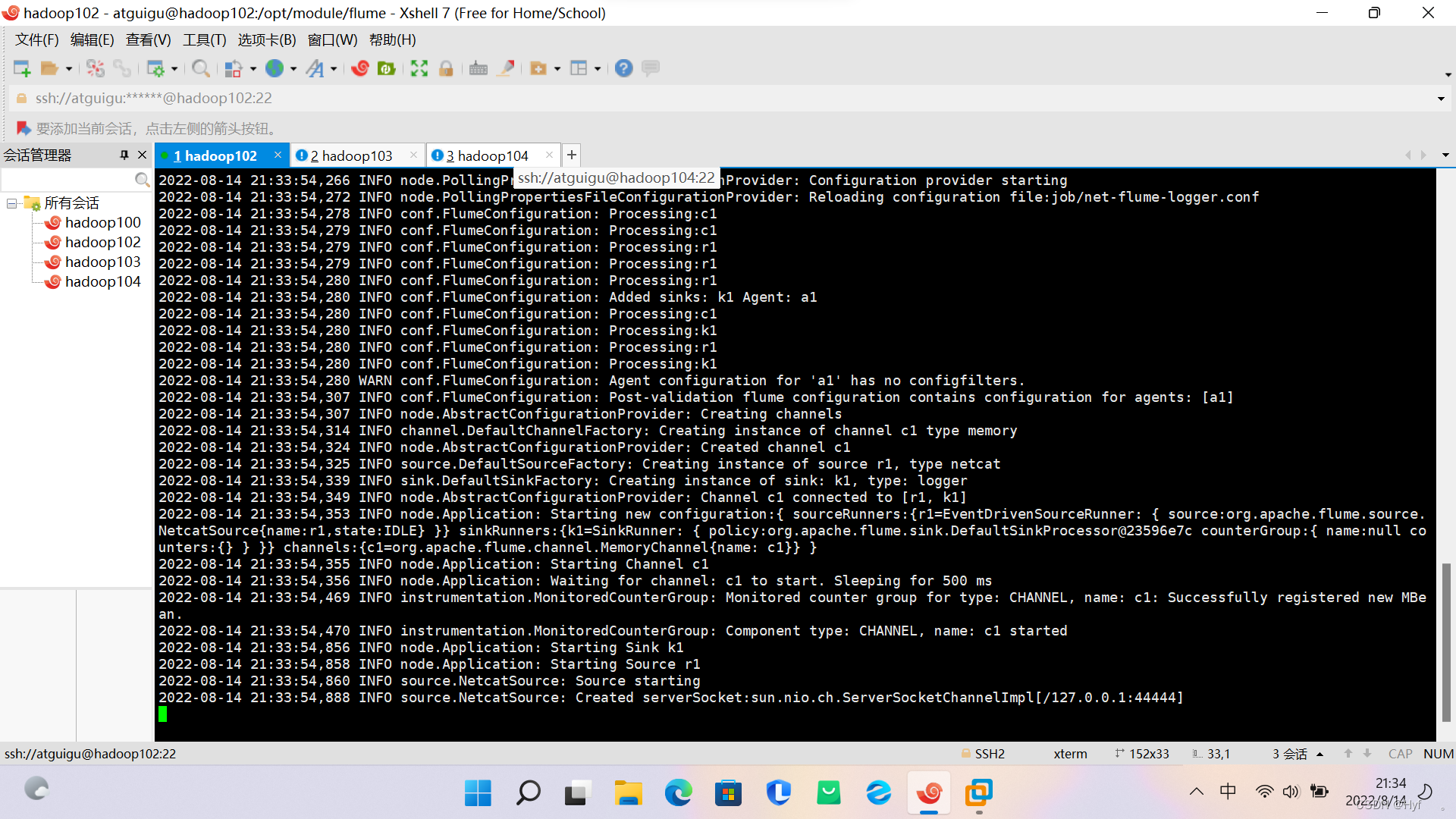
2、开启客户端
[atguigu@hadoop102 ~]$ nc localhost 44444
使用 netcat 工具向本机的 44444 端口发送内容
在客户端输入数据,测试服务端是否接收数据;
测试结果如下图
在 Flume 监听页面观察接收数据情况
